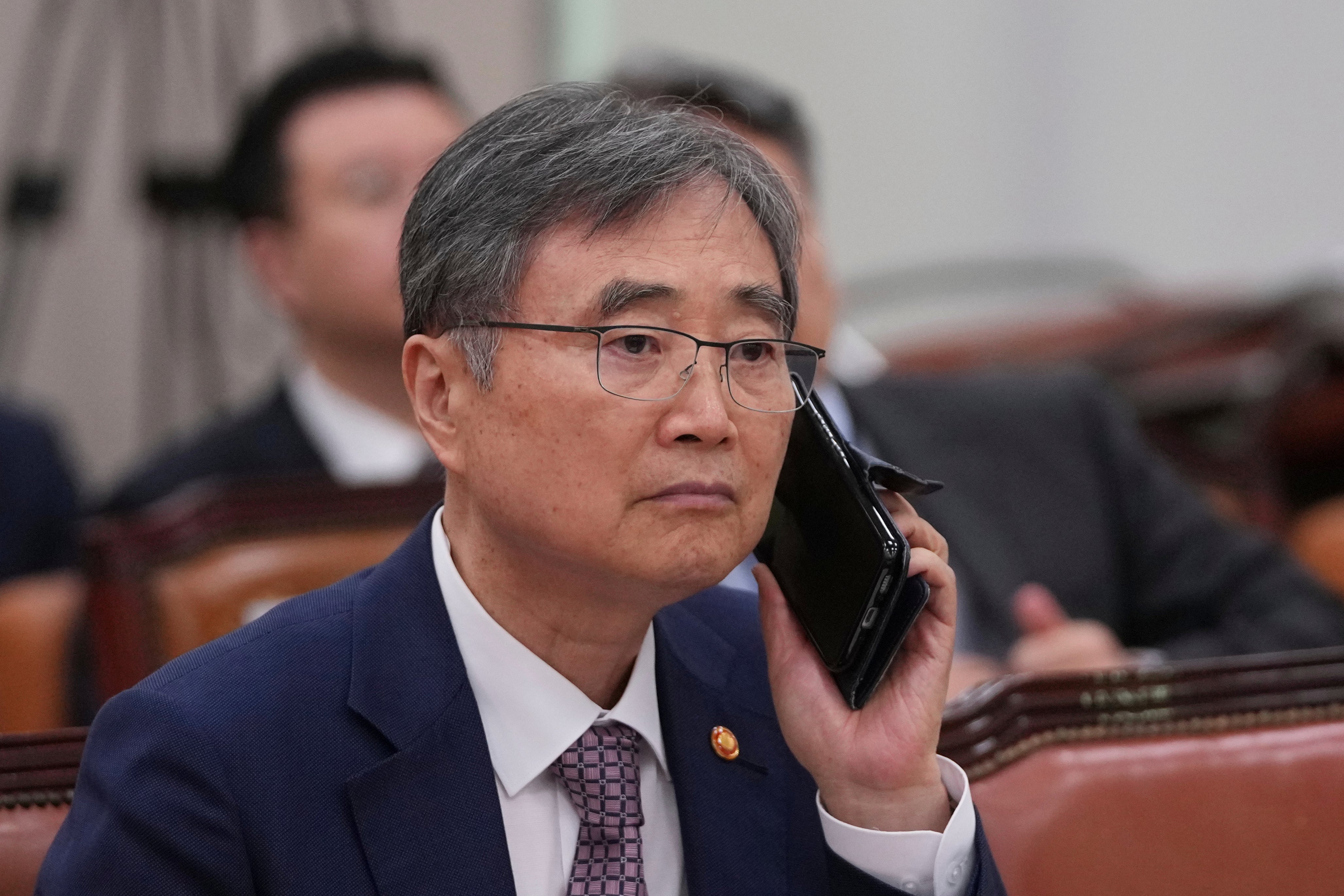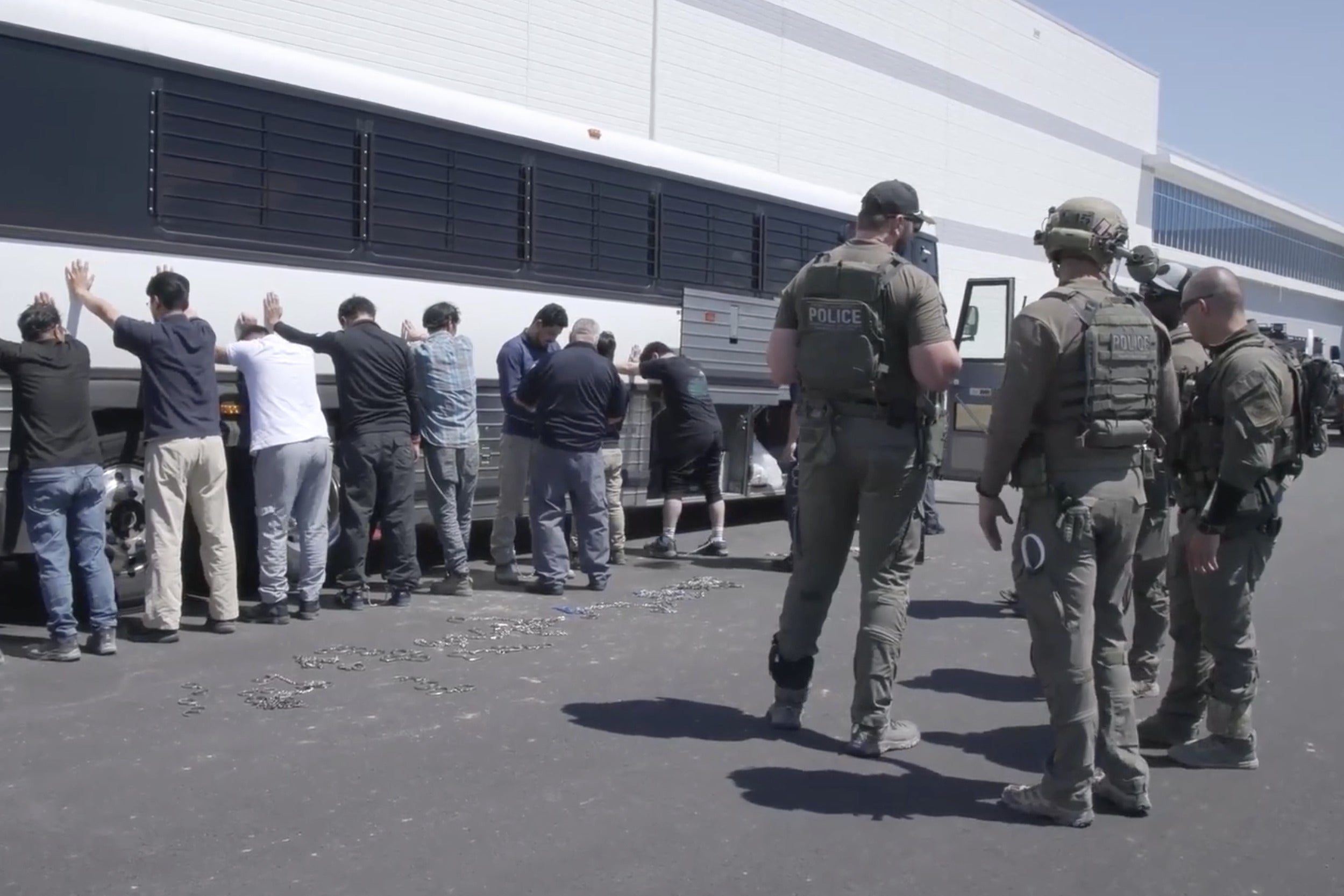Donald Trump attempted to convince the South Korean workers arrested during an immigration raid to stay and train Americans before they left, officials in Seoul said.
U.S. Immigration and Customs Enforcement (ICE) agents detained more than 300 South Korean engineers and subcontractors following a surprise raid at a car factory in Georgia on 4 September. The factory is a joint venture of Hyundai Motors and LG Energy Solution.
They also arrested 10 Chinese nationals, three Japanese and an Indonesian.
South Korea reacted with shock and concern but prioritised bilateral relations over confrontation with a key economic and strategic ally.
The raid drew criticism as footage showed the workers shackled at their wrists, ankles and waist.
It has now emerged that Trump asked his officials to “encourage” the detained South Korean workers to extend their stay in the country and train American employees, foreign ministry officials in Seoul said at a briefing.
The president “emphasised that the detained Korean nationals were skilled workers and suggested they either remain in the U.S. to contribute to training the American workforce or be returned to South Korea, depending on Seoul’s stance”, a South Korean official said, according to the Financial Times.
Many of the arrested workers were exhausted and in shock and foreign minister Cho Hyun suggested that they instead return immediately to their home country. They could be allowed to go back to the U.S. for work later if necessary, the officials said.
The workers were initially due to fly home as early as Wednesday. But Trump’s overture resulted in a one-day delay to the departure of their chartered flight. The flight was scheduled to leave later on Thursday.

South Korea’s foreign ministry confirmed on Thursday that American authorities had released 330 of the workers, mostly Koreans, and they were being transported by bus to Atlanta where they would board the chartered flight.
After a meeting with Secretary of State Marco Rubio, Cho said they had agreed the workers would not be shackled during the transport to the Hartsfield-Jackson airport in Atlanta.
U.S. immigration authorities routinely handcuff and shackle immigrants when they are put on deportation flights.
Cho said at the meeting that South Koreans were “hurt and shocked” by the arrest of fellow citizens “who came to the U.S. to transfer technology and knowhow to contribute to the Trump administration’s efforts to revive the U.S. manufacturing industry”.
He later said Seoul had “secured assurances that they will face no problems re-entering the U.S. in the future to work”.

Last week’s raid sent shockwaves through South Korea and raised questions about the viability of Korean firms doing business in the U.S.
South Korean businesses had already been complaining about strict U.S. limits on visas for skilled workers from the east Asian country, which they said made it hard for them to quickly dispatch staff to address the complexities of constructing cutting-edge factories or to train local workers.
South Korean president Lee Jae Myung said the raid could affect investment decisions made by Korean companies.
The raid was confounding and caused a great deal of confusion, he said, adding that it was likely to leave South Korean businesses “hesitant” about investing in the U.S.
His government had not yet reviewed whether there should be a new approach to business cooperation between the two nations, the president said. “But our businesses that have entered the U.S. are likely in a state of serious confusion.”
Woman who bit off attacker’s tongue acquitted after 61 years
Trump calls on EU to impose 100% tariffs on India and China to stop Ukraine war
Jimmy Lai’s son issues dire warning: ‘Release my father or see him become a martyr’
Kim Jong Un oversees test of new long-range nuclear missile
Horse famed for losing every single race and wearing a Hello Kitty mask is mourned
South Korean women file lawsuit accusing US military of systematic role in sex trade







